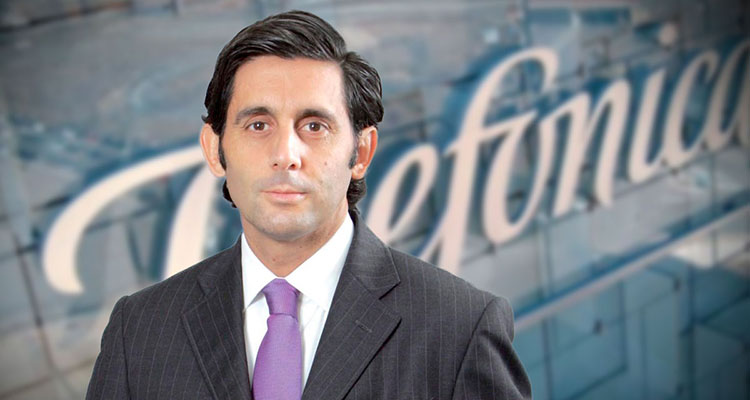José María Álvarez-Pallete, president of one of the most important telecommunications companies of the Hispanic market, Telefónica de España, considers that the ‘real challenge’ is to progress in digitization to let Artificial Intelligence (AI) ‘develop its full potential’.
With the aim of promoting a just, inclusive and sustainable digital transformation, Alvarez-Pallete calls for ‘collective responsibility with future generations to spread the benefits of digitization and leave no one behind’. He further indicates that the ‘digital revolution’ is a once-in-a-lifetime opportunity to reimagine the future.

Centering its highlights on three concepts, Relevance and Revolution through a Claim, he recalls that Pandemic has been like traveling five years in a time machine in terms of the adoption of technology: ‘Telecommunications networks have passed the test: when we were needed most, we were there. The new world shows that those networks are no longer limited to transporting data, but make the world of AI possible’.
And he underlines: ‘Up to 40% of Internet traffic is not human, but is generated by machines that talk to each other. This is going to produce an enormous amount of data that can be transformed into information by AI. The challenge is to convert that data into knowledge, for which it is necessary to take digitization to the next level, make it smart, let AI develop its full potential. And this can only happen with the support of next-generation digital infrastructure and a strong telecommunications sector whose relevance to the economy and society is now more significant than ever’.
Next-generation connectivity is considered by the executive the ‘first ingredient’ of the new intelligent digitization. Second would be technologies such as Edge Computing, the cloud, cybersecurity, IoT and Big Data. And, third, the forecast of a substantial increase in the data generated by digitization and transformed into information by AI. ‘The true evolution is there’, he completes.
‘We are going through an extraordinary opportunity that we cannot miss, but it is also a great challenge. Governments have to attract investment in the smart digital infrastructure that will make all of that possible’ says Álvarez-Pallete. ‘To achieve this, Europe needs a sustainable telecommunications sector, otherwise we will fall further behind in the global race for digital leadership’.
And he indicates: ‘We demand a new regulatory framework and competition rules to build a strong digital Europe. We propose a necessary change to take full advantage of digitization, converted into a transformative lever capable of generating growth, quality employment, sustainability and inclusion. We need a new Digital Agreement to manage the digital transition with values and people at the center’.

